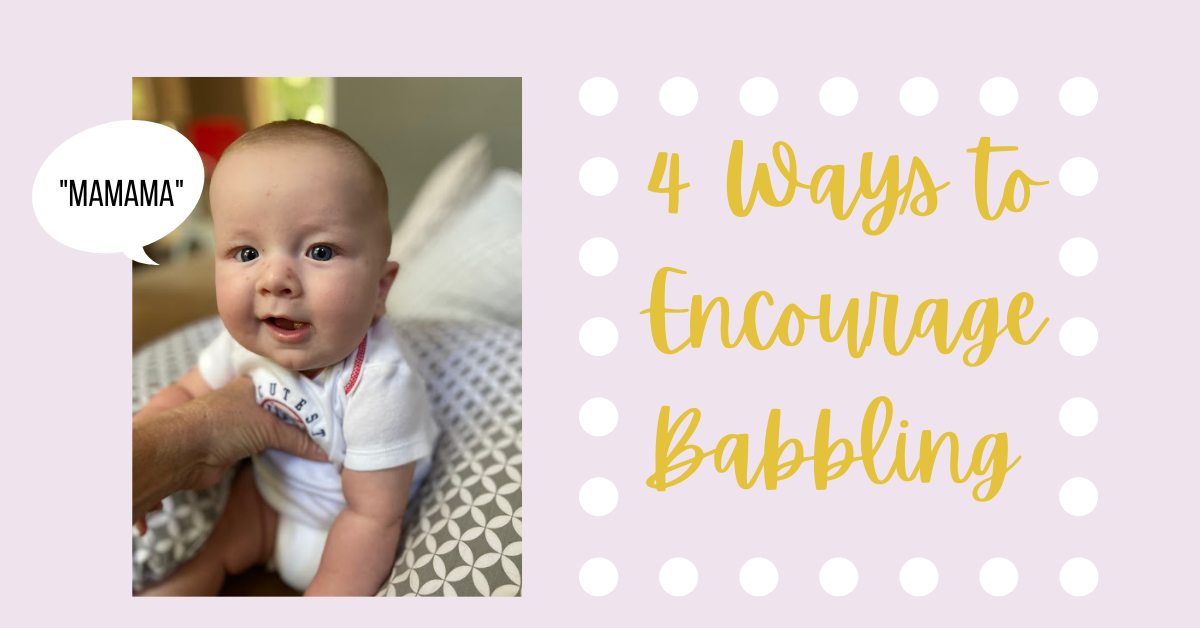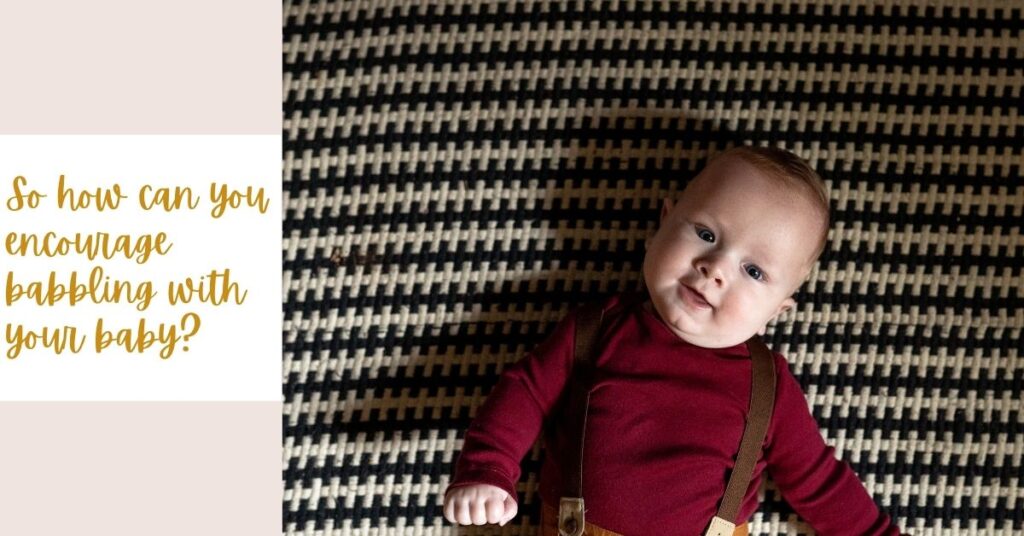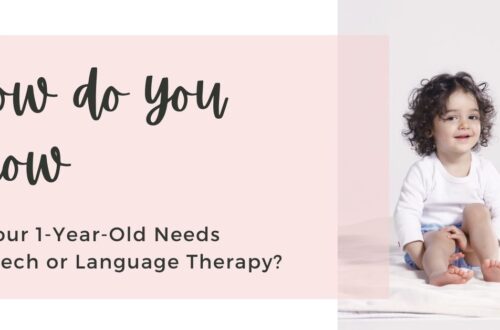
4 Ways to Encourage Babbling
How exciting is it when your baby transitions from those sweet coos and goos to early babbling? This is where my almost 6-month-old is at, and I’m loving every second of it.
Did you know that as a mama, there are several things you are probably already doing without even knowing it to help set those speech and language skills up for success? As an SLP, I’ve started paying attention to all of the things that I’ve been subconsciously using with my little guy at home to encourage his skills, specifically his babbling.
Wondering when your child should start babbling or wondering if they’re late? Babies typically begin canonical (reduplicated) babbling around 7-9 months (think /mama/, /baba/) and variegated babbling (combining different consonant and vowel sounds) between 10-12 months (Lanza & Flahive, 2008). Those early babbles can even start around 6 months – it’s never too early to start encouraging them!

- Babble – yes, you! If you babble to them, it will encourage them to babble back. Babies will often vocalize back or try to imitate as they get older.
- Tactile Prompting – this basically means teaching them what their mouth needs to do to make a specific sound by moving their mouth for them. For example, when working with babies or littles, I will often use my thumb to open and close the lips to encourage a /p, b/, or /m/ sound, or tap his lips.
**Disclaimer: I am PROMPT trained therapist (PROMPTS for Restructuring Oral Motor Phonetic Targets). Super briefly, PROMPT is an approach to treating speech sound disorders by improving oral motor skills. As it is recommended for children ages 6 months+ and my baby has not been diagnosed with a speech delay, I do not need to use and am not using the official PROMPT approach to encourage babbling. Interested or have questions about PROMPT? Leave a comment below! - Encouraging them to use their voice by reinforcing ANY communication attempts – if your baby vocalizes or makes any sounds, make sounds right back at them! See if you can get them to vocalize back and forth with you. Just like when you have a conversation with someone, babies are encouraged when you vocalize back to them because in doing so, you’re rewarding and reinforcing their communication. This will likely encourage them to keep communicating with you!
- Reinforce those early developing sounds – The earliest sounds that typically develop are /p, b, m/ – the bilabials! I like to find ways to babble these sounds to my baby or to other littles in therapy.
Some examples of this might be /mamama/ for “mama,” or “bubububu” for “bubbles.”
These may be things that you are already subconsciously doing, and if so – great! Many parents naturally find ways to encourage babbling in babies even without being aware of it. If this feels more silly and less natural to you, I want to encourage you that while it might feel pointless when they are so little, they are absolutely taking in what you say and paying attention to you. You are already making a difference. It’s never too early to start empowering your kids to grow their communication skills!
Happy babbling,

Resources:
Lanza, J. & Flahive, L. (2008). Communication Milestones. Linguisystems.com
“What is Prompt?” The PROMPT Institute. https://promptinstitute.com/page/WIPforClincian





One Comment
Pingback: